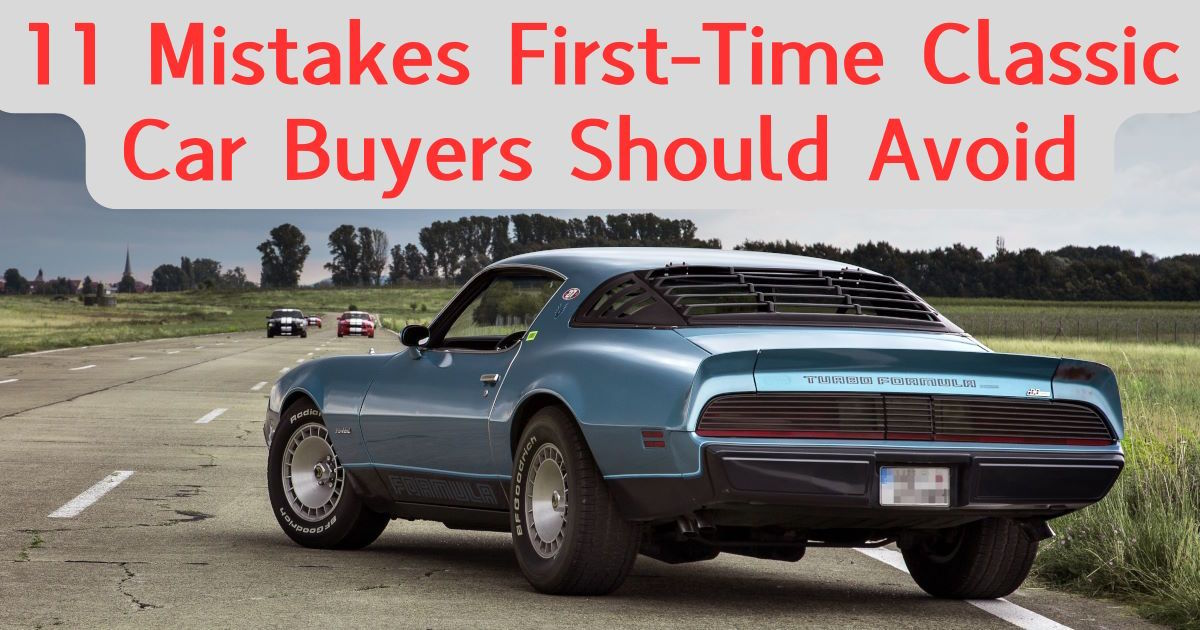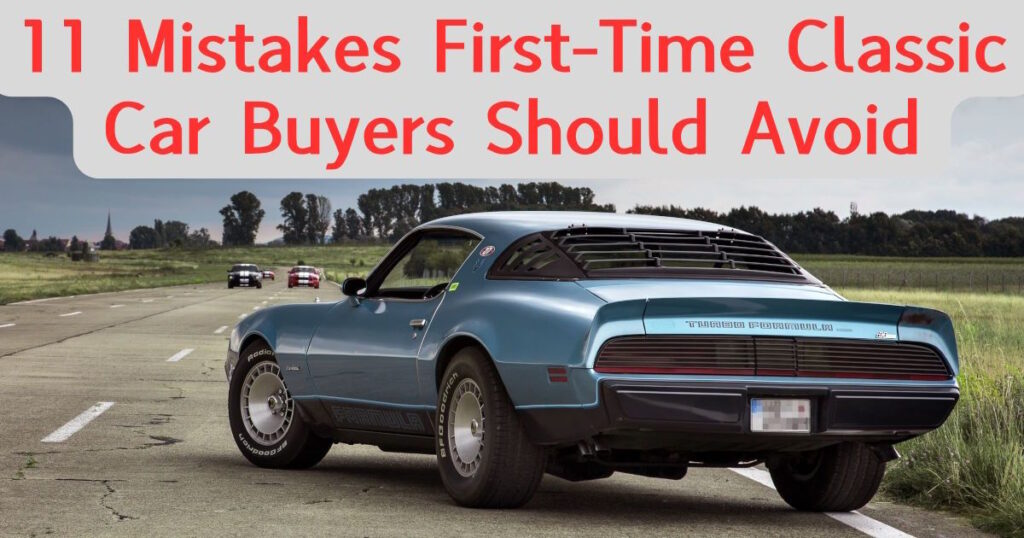
There’s nothing quite like owning a classic car. The roar of the engine, the feel of vintage upholstery, the admiring glances—it’s all part of a unique experience that transports you to another time.
But as any classic car owner will tell you, diving into this world isn’t always smooth sailing. In fact, it’s a journey paved with potential pitfalls, especially for first-time buyers.
Whether you’re daydreaming about a ‘65 Mustang or eyeing a ‘72 Corvette, avoiding these common mistakes will help you cruise smoothly into classic car ownership. Here’s a look at some rookie missteps—and how to steer clear of them!
Skipping The Research Phase
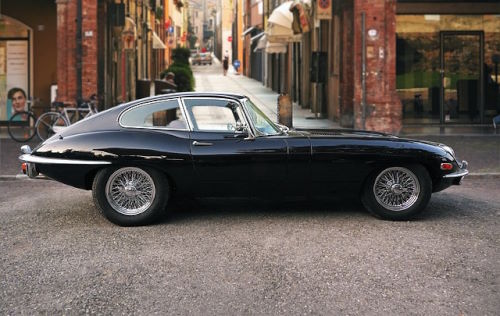
It’s easy to fall in love with the first beauty you see, but buying a classic car is a bit like marriage: you want to know what you’re signing up for. Many first-timers make the mistake of buying based on looks alone without considering the vehicle’s quirks, typical maintenance costs, and history.
Take time to research the model you’re interested in. Check online forums, join car clubs, and talk to experienced owners. They’ll give you the inside scoop on potential mechanical issues, availability of parts, and any model-specific quirks.
Underestimating Maintenance Costs
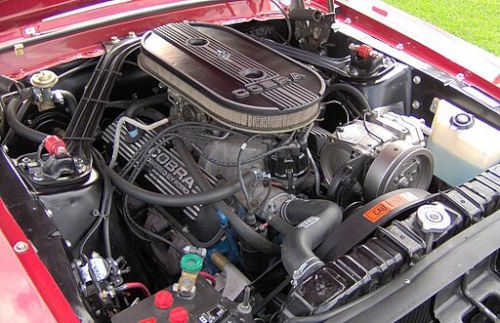
Owning a classic car can be like owning a pet. They need a lot of love, care, and—let’s be real—a bit of cash to stay happy. A common rookie mistake is underestimating the maintenance costs that come with vintage vehicles, especially if you’re used to modern cars with lower upkeep.
Set a realistic budget for ongoing repairs and maintenance. Speak with mechanics experienced in classic cars and research parts availability. Remember, a well-maintained classic will save you headaches (and wallet aches) down the road.
Related: When Does a Car Become a True Classic? 7 Factors
Not Having a Clear Purpose
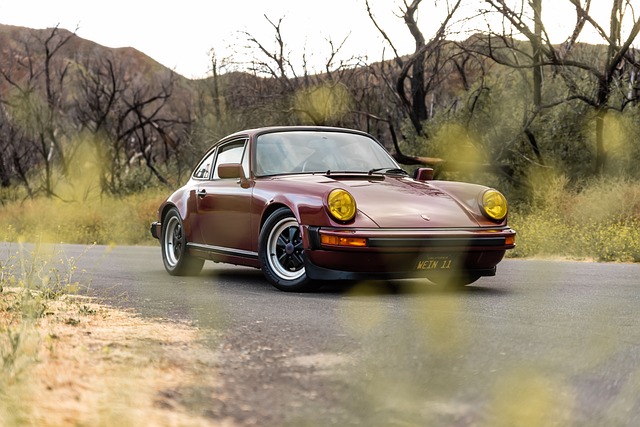
Do you want a show car? A weekend driver? Or maybe a car to restore yourself? First-time buyers often skip this step and end up with a vehicle that doesn’t fit their lifestyle or goals. If you’re dreaming of long weekend drives, a high-maintenance show car might not be the best choice.
Determine your goals before buying. If you want a weekend driver, look for a model known for reliability. If restoration is your game, assess your skills and time commitment. Having a clear purpose will make your search more targeted and satisfying.
Neglecting To Inspect For Rust
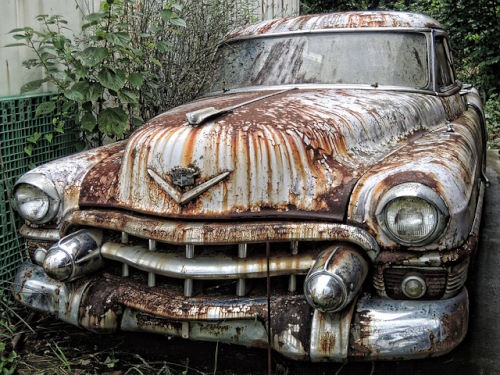
Rust is every classic car’s silent assassin. It can lurk in hard-to-see places, and ignoring it can lead to big problems down the line. Many first-time buyers overlook a thorough inspection for rust, either due to inexperience or pure excitement.
Inspect common rust-prone areas like the undercarriage, wheel wells, and door panels. If you’re not sure what to look for, bring along a professional or a knowledgeable friend. Remember, it’s easier to prevent rust than to repair it.
Related: 11 Affordable Classic Cars Perfect for Beginners
Skipping a Test Drive (Or Two)
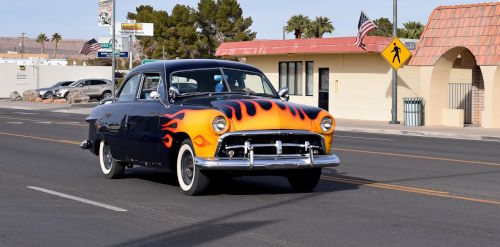
Even if the car looks like it just rolled off the showroom floor, never skip a test drive. Many newbies get swept up in appearances and forget to see how the car actually feels on the road.
Test every car you’re seriously considering, ideally in varied driving conditions. Listen for any odd noises, feel for vibrations, and pay attention to how it handles. If something feels off, don’t brush it off—ask questions or consider moving on.
Ignoring the Importance of Original Parts
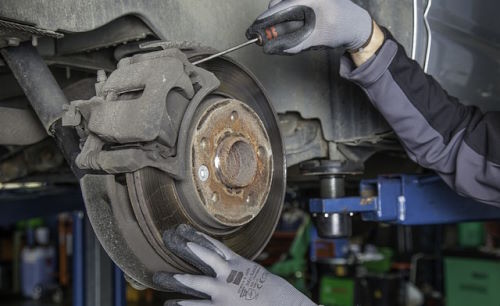
Original parts make a big difference in a classic car’s value and authenticity. Some buyers overlook this and end up with cars that have been heavily modified, which might not satisfy purists—or your future resale value.
If originality matters to you, verify the car’s parts with the seller. Research the significance of original versus aftermarket parts for your chosen model and decide what’s most important to you.
Falling for Unrealistic Deals
If a deal sounds too good to be true, it probably is. New buyers often get caught up in the thrill of a “steal” and miss the red flags, like vague ownership history, suspiciously low prices, or limited documentation.
Stay cautious and verify all details. Always request a vehicle history report, and if possible, consult a classic car expert to ensure you’re not stepping into a hidden money pit.
Failing to Budget for Insurance

Classic car insurance isn’t like your average car policy. It often comes with unique requirements, including mileage limits and storage rules. Many new owners overlook this and face unexpected costs or coverage issues.
Contact classic car insurance providers before buying to understand their specific terms. This will help you budget appropriately and ensure your car is protected under suitable conditions.
Overlooking Storage Needs
Storing a classic car isn’t as simple as parking it in the driveway. Without proper storage, your car can quickly fall victim to weather, dust, and even pests.
If you don’t have a garage, consider renting storage or investing in a high-quality car cover. Look into climate-controlled options if you’re in a humid area to keep rust and mold at bay.
Not Joining the Classic Car Community
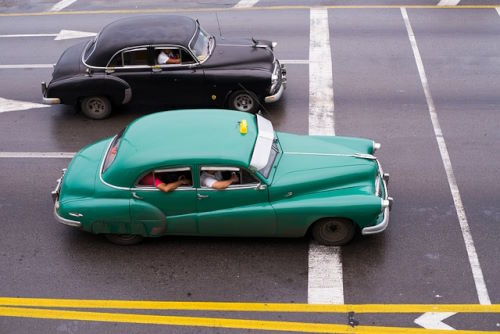
Classic car ownership is more enjoyable with a community. Many first-time buyers miss out on the wealth of information, resources, and camaraderie that comes from joining classic car clubs or online forums.
Look up local classic car clubs or join online groups. These communities are full of helpful people who can answer questions, offer advice, and maybe even help you find your next project car.
Rushing the Buying Process
Patience is key in the world of classic cars. New buyers often rush into a purchase because they’re afraid of missing out, only to regret it later when they find a better deal or a model they prefer.
Tip: Take your time. Keep looking, ask lots of questions, and don’t settle for a car that doesn’t meet your expectations. Trust that the right car is out there, and you’ll know when you’ve found it.
Final Thoughts
Buying a classic car is an adventure, and avoiding these common pitfalls can make the journey all the more rewarding. If you’re careful, informed, and patient, you’ll end up with a car you love—one that turns heads, sparks conversations, and brings you joy for years to come.
Now that you’re equipped with insider tips, why not share your own? What lessons have you learned as a classic car owner, or what models are you eyeing? Drop your experiences or photos on our Facebook page!
Related Articles:

